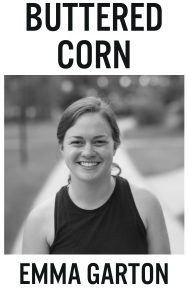 Concordia’s marketing team, admissions representatives and I all have something in common: we are well-versed in the art of deception. Concordia College is, well, a college. And in order to be successful, a college needs to have students. In order to have students, a college needs to appear appealing. What appealing factor do we market the most? Happiness. If you visit Concordia’s website, look at the brochures or see campus photos anywhere, what you will notice are smiles. Lots of them. The issue of the “Happy Cobber” has been written about and discussed time and time again, and I am desperately hoping I will be able to add something new to the conversation — something that will spark action. Because, despite being written about and discussed on numerous occasions, somehow this issue still hasn’t been addressed.
Concordia’s marketing team, admissions representatives and I all have something in common: we are well-versed in the art of deception. Concordia College is, well, a college. And in order to be successful, a college needs to have students. In order to have students, a college needs to appear appealing. What appealing factor do we market the most? Happiness. If you visit Concordia’s website, look at the brochures or see campus photos anywhere, what you will notice are smiles. Lots of them. The issue of the “Happy Cobber” has been written about and discussed time and time again, and I am desperately hoping I will be able to add something new to the conversation — something that will spark action. Because, despite being written about and discussed on numerous occasions, somehow this issue still hasn’t been addressed.
In order to do this, I am going to have to delve a bit deeper into my personal life than I would normally like. What makes me, like so many of Concordia’s employees, deceptive? We are both quite good at portraying joy and success when it isn’t necessarily there. For those of you who know me, I fit the stereotype of the “Happy Cobber” flawlessly. For those of you who know me well, I am quite the opposite. This article is an open letter to Concordia’s administration from a student with depression. I would like you all to know what your marketing strategies mean for your students who do not fit your ideal stereotype.
Opening Concordia’s homepage and opening Instagram share some striking similarities. There are mountains of research that prove that social media use is correlated to an increase in depression among adolescents. When young adults open social media and see smiles and perfection, they fall victim to the illusion that everybody’s life is better than theirs. People forget the intentionality of lighting and angles in those “perfect” selfies, and they fail to consider that one image from a night out does not define someone else’s life. Similarly, Concordia’s homepage shares the stories of its most successful students and photos of smiling students in the prettiest parts of campus.
For an institution that has outlined that one of its goals is to highlight its commitment to the “freedom to search for truth,” I am disappointed by its ability, or lack thereof, to display its own truths to the world. I understand that most marketing techniques probably do not include telling the audience that bad things are associated with the product, but a college isn’t just any product — it’s a lifestyle. People deserve to see the full picture of the lifestyle they are choosing, not just the selfie with the flattering angle.
Why do I care how Concordia portrays its student population? For one, it tells me that Concordia expects its students to be happy. For someone whose brain is chemically wired to struggle with happiness a little more than some, this is rather disheartening. Based on what I see solely on social media, Concordia would not condone my depression.
But, what I’ve experienced here is quite different. My time at Concordia has been defined by tolerance and understanding from just about everybody around me. People with mental illnesses can learn and thrive on this campus. So why doesn’t Concordia want to advertise this? One in four college students suffer from some kind of mental illness. Rather than showing this 25 percent of our targeted demographic that they will not fit in here, let’s tell them about our students with mental illnesses who grow and overcome incredible obstacles with the help of their professors and friends here at Concordia.
I’m not suggesting we cover the Concordia homepage with photos of crying students. Obviously, that is a bad idea for several reasons. But, work needs to be done to provide a more genuine perspective of Cobbers. I believe this is the first step to removing the stigma of the “Happy Cobber.” Not all Cobbers are happy, but all Cobbers are given the tools they need to thrive. That is what we need to market, and that is what we need to be known for. And with that, I leave your corn buttered.


I really appreciate this perspective, and applaud your suggestion about utilizing the cord.edu homepage differently. As someone who managed the student call center in the Admissions office for 2.5 years, it would have been a huge relief to know that we could tell stories like yours instead of the “everything is fabulous here” narratives we all learned to tell well. (Not that those are/were bad or unhelpful inherently.) I’d be curious to learn more about what did work for you, then, with CC’s marketing and how you got the feeling that you would thrive there, despite the “corny” marketing materials. Nonetheless. The Office of Comm should feature you next, Emma! Keep it up.
A Former Concordian News Editor